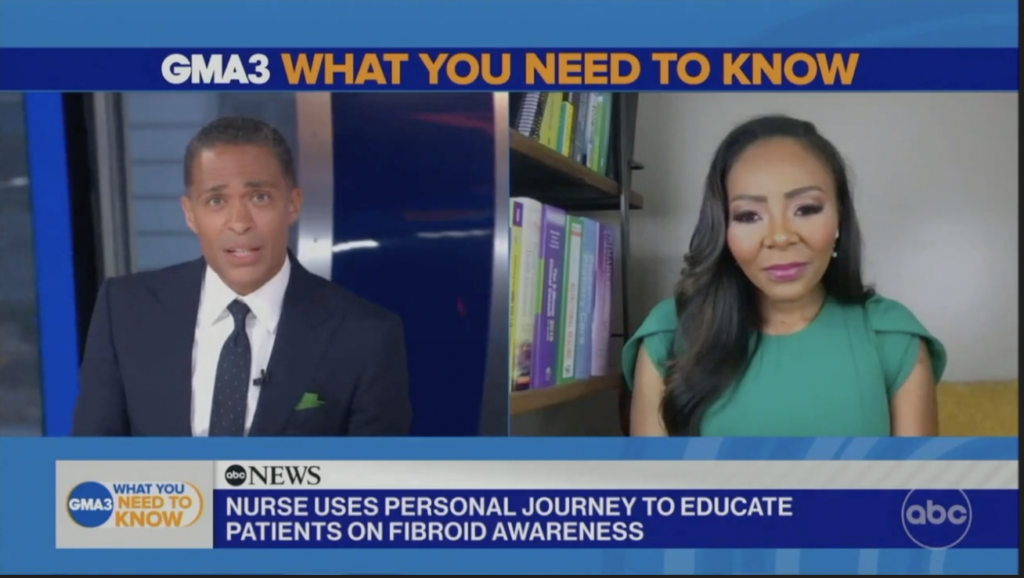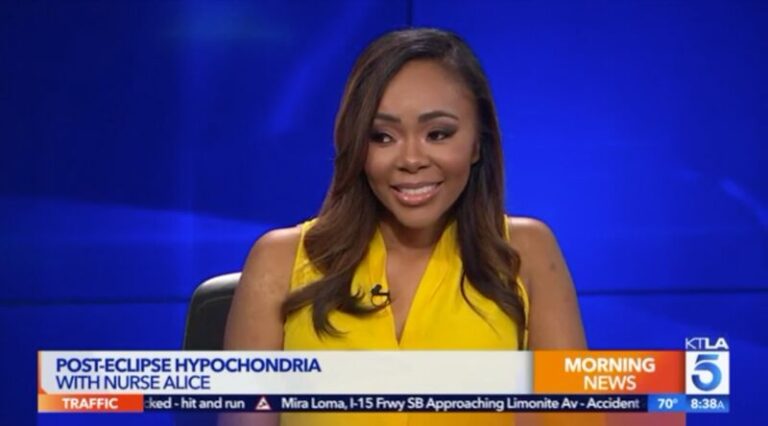Have you ever seen a health expert doing a spot on television and think, “Hey, I could do that?”
Then you’re in luck, because Alice Benjamin, APRN, MSN, ACNS-BC, FNP-B, CCRN, CEN, CV-BC, Chief Nursing Officer & Correspondent for Nurse.org, Clinical Nurse Specialist & Family Nurse Practitioner, and a critical-care and emergency medicine nurse with over 23 years of experience does just that. She also has her own podcast.
Benjamin gave us information about how she got into being a TV Health Expert.
 How did you get into being a TV Health Expert? How long have you been doing it?
How did you get into being a TV Health Expert? How long have you been doing it?
I have been long-term volunteer with the American Heart Association and was asked to do radio spots for them around being heart healthy. That then segued to different TV opportunities until the next thing you know it, I had become a freelance TV health expert on several shows and outlets, NBC Los Angeles being one of them. After about a year with them, they offered a paid position that required me to be exclusive to NBC locally, and I accepted the offer. I have been a TV health expert in total for about 10 years. I appear on NBC anywhere from 4-12 times a week depending on what’s going on in the news.
Explain to me briefly what you do as a TV Health Expert. Did you have to get additional training/education to do it?
I take complex studies and medical information and translate that into simple bullet points for the audience. I use my expertise to sift through the studies to make sure it is reliable information and generalizable to the public, and if not—I explain that. I make sure that data isn’t regurgitated that isn’t helpful to public health.
I also take this opportunity to educate the public with information to help them make healthy and safe choices for themselves and families. I have taken several courses in communications and journalism to bring myself up to speed with the TV broadcast skill set. That coupled with my more than 23 years’ experience as an advanced practice nurse is what has duly prepared me to be in this role. I’ve also been a long-time community health advocate, so speaking to the general public has always been part of my wheelhouse.
What types of topics do you discuss? Do you suggest them or does someone at the station?
Pitching topics is a shared role between myself and the producers. Sometimes they get stories before I do, and sometimes I see stories that need to be shared. I also have journalistic privileges that allow me to see studies before the public roll out so I get to help the station prepare a story for when that embargoed date comes.
What do you like most about working as a TV Health Expert?
I enjoy being able to speak to people before they become my patients. I enjoy educating and empowering people with information to help them live healthy lives. I also like to answer many viewer questions so they feel heard and provide them with some things to ask their main provider. I also love the fact that I am a nurse in this profession. There is not another nurse (that I know of) who is a regular health/medical contributor on TV.
What are your biggest challenges as a TV Health Expert? What are your greatest rewards as one?
My greatest reward is helping people. My biggest challenge is always having the time to do so. I still work as a nurse so making time to research, prep, and be on TV takes a lot of time and work.
If someone wanted to get into the type of side gig you’re doing, what steps would you tell them to take?
I get that question a lot and I’m always a little confused with how to answer it. I never sought out to be a TV health expert. It’s something that I fell into. It was a natural calling. And I happened to be in the right place at the right time.
My recommendation to others would be to study journalism and communications along with being a nurse. This isn’t something that you just pick up and do. It requires training and orienting for a specialty. Health media/communications is definitely a specialty.
Anything else?
Being on television as an advanced practice nurse talking to the masses about health, wellness, and medical issues has been extremely fulfilling. Some have told me that I make it look easy, but believe me it is not. As an experienced clinical nurse specialist and family nurse practitioner with lots of life experience, this has allowed me to feel comfortable with doing this. I still participate in media training provided by NBC. I am continuously learning communications, just as I am continuously learning health care as things change.
- What an MSN Can Do for You - October 18, 2023
- The National League for Nursing: Connecting the Academic and Clinical Worlds for 130 Years - August 16, 2023
- Treating Burnout, Trauma, and Grief with Dance - July 14, 2023



